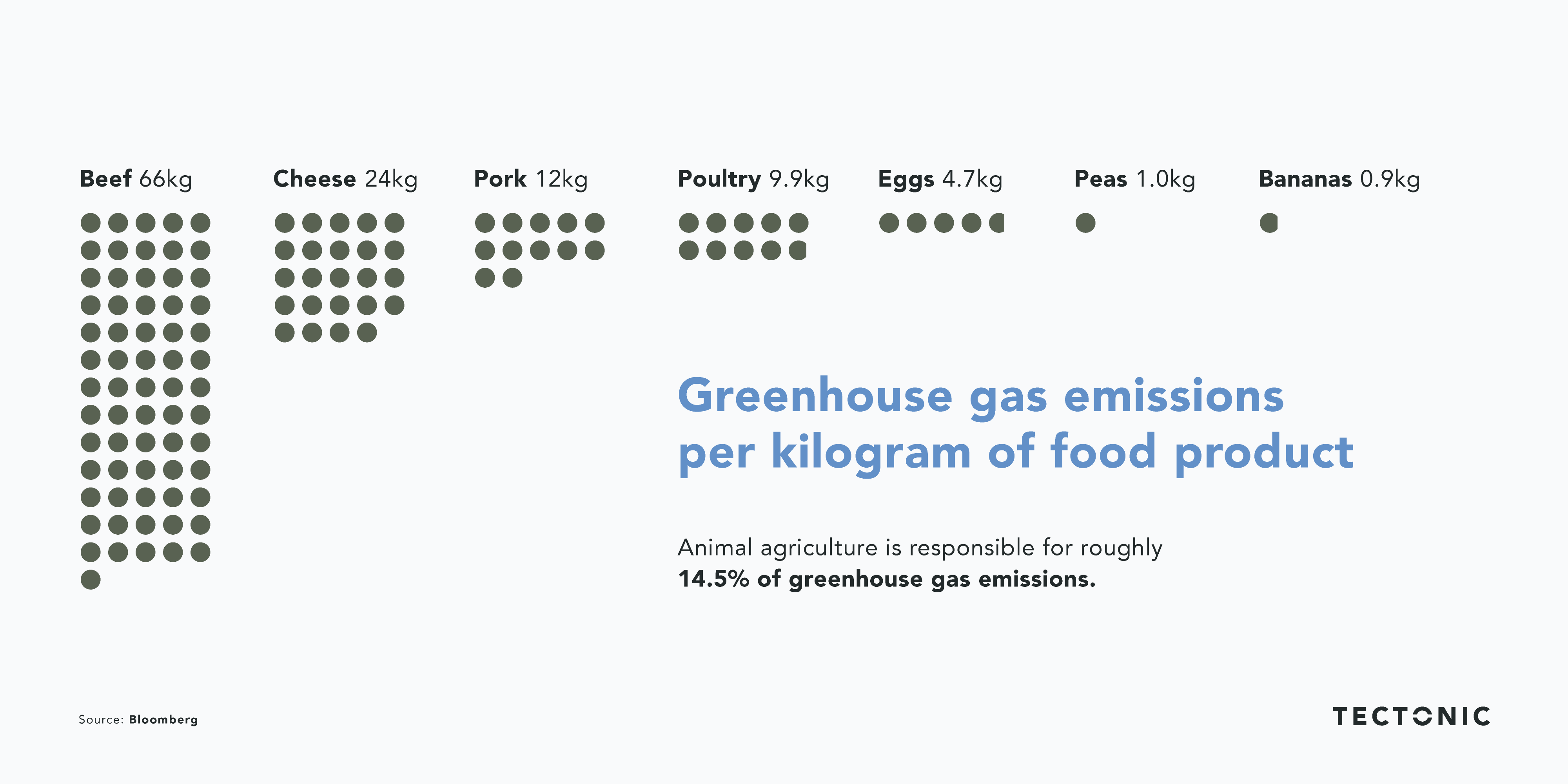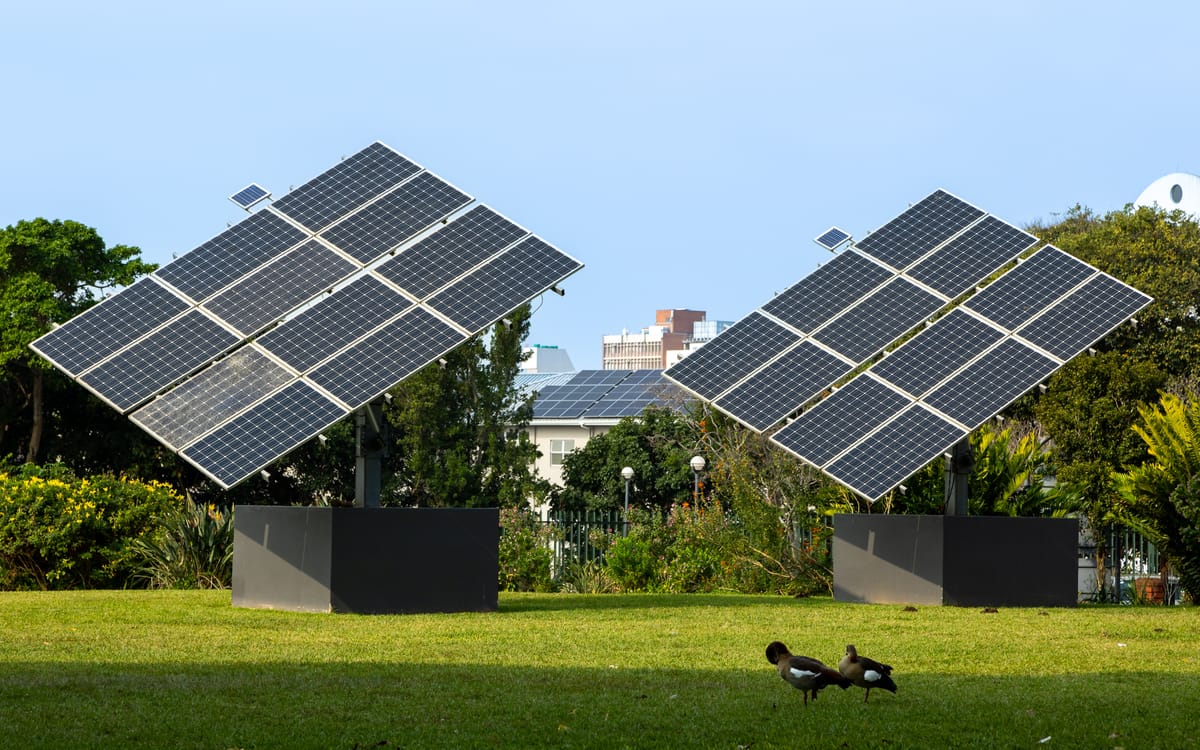In this week's newsletter, we're considering the need for scaling climate finance across Africa, a program working with farmers in the Amazon to protect and restore nature, and the progress of an ambitious plan to plant one trillion trees.
Advancing climate finance in Africa: Akinwumi Adesina, the president of the African Development Bank, said the continent is home to nine of the ten most vulnerable countries and loses between $7-15 billion a year due to climate change, a figure that could reach $50 billion by 2030. He argues that finance for climate adaptation and development must advance together on a continent where 60% of the population is under 25 years old and where there will be another billion people by mid-century. Currently, the ADB commits 44% of its annual $10 billion in financing to climate, with 67% of that going to adaptation, and an initiative called the Africa Adaptation Acceleration Program is seeking to mobilize $25 billion for climate adaptation.
Solar in South Africa: A two-year-old startup called GoSolr is spending $537 million to scale a solar panel and battery rental program across South Africa. The company aims to install 500 megawatts of solar power within four years, up from its current 70 megawatts and has backing from South African billionaire Patrice Motsepe and Standard Bank Group. Currently, only 9.9% of the nation’s power comes from solar, 77% from coal, and 0.7% of its 17.8 million households use the technology.
Reforesting the Amazon: A company called Re.green is working with cattle ranchers on the edge of the Amazon rainforest in Brazil to advance an economic model to stop deforestation. Re.green is restoring native trees, protecting them, and selling carbon credits, promoting an economic incentive to protect an ecosystem that scientists are concerned could collapse in the coming decades. If successful and scaled, the approach can provide additional income for ranchers already witnessing climate change's adverse effects on their farmland. Along with another company working in the region called Mombak, the two companies have raised $200 million from investors.
Nudging consumers towards plant-based meals: A new report from the World Resources Institute outlines how companies, schools, hospitals, conferences, and other venues can use basic behavioral economics to "nudge" consumers towards plant-based meal options. With simple replacements, UC San Diego Health has reduced red meat purchases by 13% since 2017, cafes at Google have moved meat to the end of the buffet line, encouraging employees to fill up on plant-based options first, and Sodexo North America cut food emissions by 24% by serving planet-based dishes by default.

A plan to plant or protect one trillion trees: At the 2020 World Economic Forum, Marc Benioff announced an ambitious commitment to plant or protect 1 trillion trees by 2030. This amounts to enough trees to cover an area three times the size of India and, by one report, sequester 200 billion metric tons of carbon dioxide – five times the global emissions in 2023. The commitment garnered strong, early support, including from former US President Donald Trump and Republican lawmakers in Congress, but raised concerns from climate advocates who argue it pulls focus away from the core issue of slashing carbon emissions. But four years later, 134 billion trees have been pledged, and a partial count suggests only 2.6 billion trees have been planted or protected thus far.
More efficient water heaters: The Biden Administration announced new energy-efficiency standards for residential water heaters, which the Department of Energy said will save households and businesses nearly $1 trillion over 30 years. The new standards on what is often one of the largest energy users in American homes will shift most new electric water heaters to heat pump technology. The average American family is expected to save $100 annually on lower utility bills, and the new standards will cut greenhouse emissions equivalent to about 18 million cars being taken off the road.
A new film explores "The Shitthropocene": With global apparel consumption projected to reach 102 million tons by the end of the decade and apparel accounting for 4-8% of global emissions, companies are trying new ways to change consumer behavior. A new comedic documentary from Patagonia Films attempts this feat, combining satire with science as it questions how much clothing we need.
Energizing hydrogen: The German government has allotted €13.2 billion for investment across about two dozen hydrogen-development projects. As the technology takes off, companies like Germany's ThyssenKrupp Nucera have attracted additional investment for electrolyzers in Saudi Arabia, the United States, and Shell. ThyssenKrupp will use the hydrogen to reduce the 20 million tons of carbon dioxide that its steel mill produces, which represents 2.5% of Germany's overall emissions.


